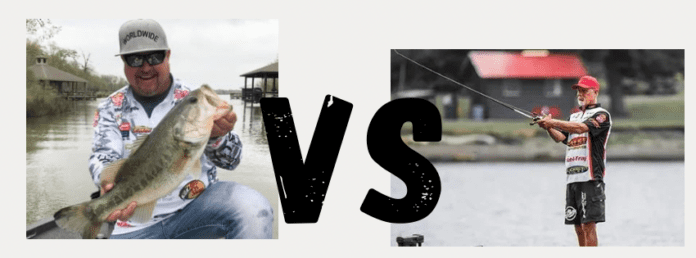James Watson’s disqualification from the MLF Bass Pro Series has sparked a heated debate among fans, anglers, and industry insiders. At the heart of the matter is a question that many are pondering: What rule did James Watson break to warrant such an action? From my perspective, the crux of the issue lies in a perceived infringement of the sportsmanship rule, a principle that MLF holds in high regard. Sportsmanship, as defined by many sports organizations including MLF, extends beyond mere conduct during competition; it encompasses respect, integrity, and the manner in which one expresses opinions about the organization, officials, and fellow competitors. I have attached MLF Sportsmanship Rules
7. SPORTSMANSHIP:
a. A Sportsmanship Violation is defined as aggressive or hostile behavior directed at a fellow MLF Angler, MLF Official, a non-competitor or any representative of MLF, including the use of profanity directed at these individuals. Sportsmanship Violations will not be tolerated. MLF Officials are required to report any such violations to the MLF Tournament Director. Any Sportsmanship Violation Penalty will be determined by the MLF Tournament Director and the Rules Infraction Committee made up of the MLF Executive Vice President and General Manager and MLF Vice President of Operations.
b. Flagrant Violation: A flagrant violation of any act that reflects unfavorably upon the positive efforts of MLF, MLF sponsors, spectators, fishery conservation, and clean waters – including littering – will not be tolerated. Any Flagrant Violation Penalty will be determined by the MLF Tournament Director.
c. MLF Anglers are expected to follow high standards of sportsmanship, courtesy, safety, and conservation. Any violation of the standards may be deemed cause for disqualification.
Now, let’s delve into the specifics that have led to this controversy. Watson, known for his candid and often colorful commentary, made appearances on several podcast shows where he openly shared his critiques and thoughts concerning the MLF Bass Pro Series. Moreover, he even took a further step by creating hats that seemingly voiced his dissent regarding the current state of affairs within the series. This mode of expression, while indicative of Watson’s right to free speech, appears to have crossed what MLF considers a boundary of respect and decorum towards the competition and its participants.
Amidst this turmoil, a particularly contentious point is Boyd Duckett’s participation in the series he co-founded. The question arises: Is it fair for Duckett to fish in his own series, thereby potentially taking the spot of another angler in a field that is already limited? This situation stirs a complex debate about the balance between leadership roles and competitive participation within the same organization.
As we look forward to the implications of Watson’s suspension (Banned until 2026), it prompts reflection on the future conduct of anglers and the enforcement of rules by the MLF. Will we see a stricter interpretation and application of the sportsmanship rule, leading to more suspensions? Or will the organization and its participants find a middle ground that allows for open, yet respectful, discourse?
From where I stand, the essence of sportsmanship must evolve to encompass not only in-competition behavior but also how competitors engage with and speak about the series and each other in public forums. The fishing community thrives on camaraderie, passion, and a shared love for the sport. It’s imperative that these values guide our actions, both on the water and off.
As we consider the future of the MLF and its anglers, it is crucial to open the floor to a broader conversation. What are your thoughts on the balance between free expression and maintaining respect within the sport? How should organizations like the MLF navigate the participation of figures such as Boyd Duckett in the competitions they oversee? The answers to these questions might not be simple, but engaging in this dialogue is essential for the growth and integrity of competitive fishing.
In the end, the fishing rod is mightier than the sword, and how we wield it—in competition, in speech, and in action—defines the spirit of the sport.

